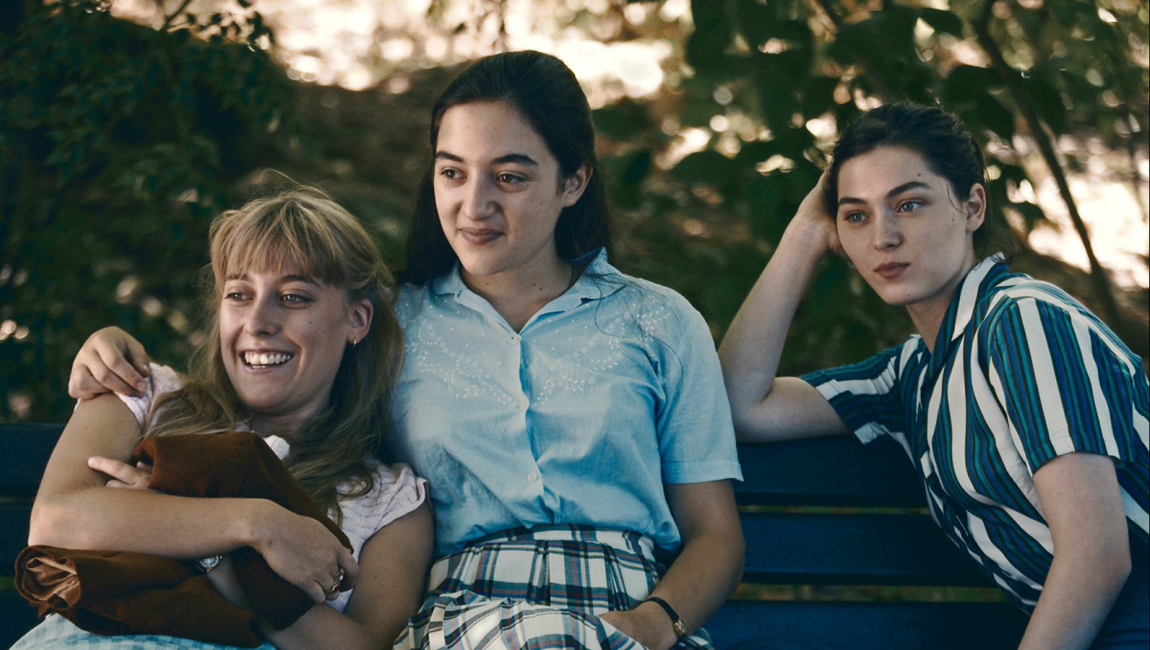Happening is a film of intense linearity and physicality, but it leaves one wishing for a film that had perhaps widened its scope for more reflection.
Early on in Audrey Diwan’s Golden Lion–winning feature, Happening, a young woman is singled out in a classroom, unable to answer her professor’s query about a poem. Through a group of classmates, we learn that she is set to leave school to get married, though their gossip is cut short when the professor turns his question onto one of them — the film’s central character — Anne (Anamaria Vartolomei). She, though, does not fumble, and indeed expertly holds forth on the poem’s recurring war imagery, its historical context, and even the writer’s use of anaphora. But before the end of Happening, adapted from Annie Ernaux’s 2000 novel of the same name, an unwanted pregnancy will place Anne into much the same position as that former classmate: As a young woman living in France circa 1963, she will be forced to either choose domestic life as an unwed mother, or else risk imprisonment and death for a chance at a life made possible by a university education. (“I’d like a child one day, but not instead of a life,” Anne remarks to a sympathetic doctor who’s nonetheless unwilling to help her.) And as Diwan suggests using claustrophobic compositions, a pervasive atmosphere of conflict and suspense, and a recurring use of militaristic, in-the-trenches imagery: for a young woman, this situation is a war of its own.
For the most part, Diwan does not develop the film dramatically: Happening does not progress toward an end that illuminates the beginning (or any other moment of the film), but rather functions as an intensely linear experience. It sets up Anne’s attempts to get an abortion against a series of impediments — financial, personal, physical — and charts her efforts at overcoming them. Among the university students, Diwan sketches out a believable atmosphere of repressed sexual desire and concomitant prudishness, but by and large, details of environment and character are used to highlight Anne’s growing isolation. As the weeks pass on, the script methodically closes off various alternatives, leaving Anne with only more drastic options.
All this makes for an undeniably physical experience: A scene where Anne uses a metal skewer to try and induce a miscarriage recalls a similarly squirm-inducing passage in Titane. And it’s hard to deny that Diwan gets the effects she wants, conveying something of what Anne is going through, what she feels in the moment. But when, toward the end of the film, Anne declares her desire to become not a teacher but a writer, pointing to both Ernaux’s source novel and a kind of retrospective viewpoint that’s entirely absent from the film, one does wonder at the limits of Diwan’s approach. The film’s intense physicality is no doubt true to Anne’s present-tense experience, but especially given the period setting, one does wonder at a different sort of film — one that widened its scope enough to make room for just one moment of reflection.
Originally published as part of Sundance Film Festival 2022 — Dispatch 3.







